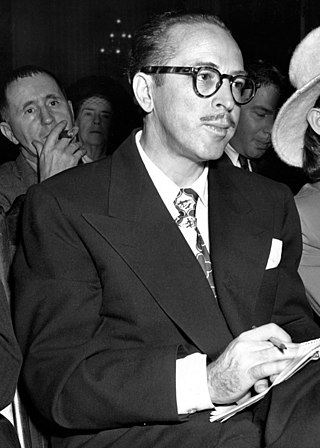
James Dalton Trumbo was an American screenwriter who scripted many award-winning films, including Roman Holiday (1953), Exodus, Spartacus, and Thirty Seconds Over Tokyo (1944). One of the Hollywood Ten, he refused to testify before the House Un-American Activities Committee (HUAC) in 1947 during the committee's investigation of alleged Communist influences in the motion picture industry.

Johnny Got His Gun is an anti-war novel written in 1938 by American novelist Dalton Trumbo and published in September 1939 by J. B. Lippincott. The novel won one of the early National Book Awards: the Most Original Book of 1939. A 1971 film adaptation was written and directed by Trumbo.
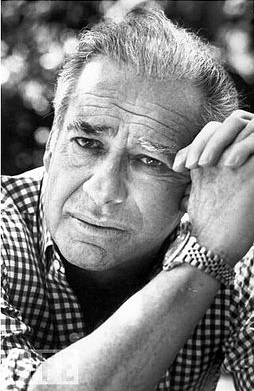
John Michael Frankenheimer was an American film and television director known for social dramas and action/suspense films. Among his credits were Birdman of Alcatraz (1962), The Manchurian Candidate (1962), Seven Days in May (1964), The Train (1964), Seconds (1966), Grand Prix (1966), French Connection II (1975), Black Sunday (1977), The Island of Dr. Moreau (1996), and Ronin (1998).

Love Story is a 1970 American romance film written by Erich Segal, who was also the author of the best-selling 1970 novel of the same name. It was produced by Howard G. Minsky, and directed by Arthur Hiller, starring Ali MacGraw, Ryan O'Neal, John Marley, Ray Milland and Tommy Lee Jones in his film debut.

Buzkashi is the national sport of Afghanistan. It is a traditional sport in which horse-mounted players attempt to place a goat or calf carcass in a goal. Similar games are known as kokpar, kupkari, and ulak tartysh in Kyrgyzstan and Kazakhstan.
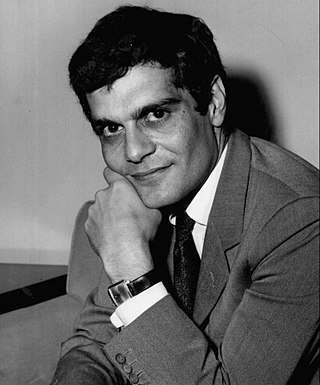
Omar Sharif was an Egyptian actor, generally regarded as one of his country's greatest male film stars. He began his career in his native country in the 1950s. He is best known for his appearances in American, British, French, and Italian productions. His career encompassed over 100 films spanning 50 years, and brought him many accolades including three Golden Globe Awards and a César Award for Best Actor.

Funny Lady is a 1975 American biographical musical comedy-drama film and the sequel to the 1968 film Funny Girl. The film stars Barbra Streisand, James Caan, Omar Sharif, Roddy McDowall and Ben Vereen.

French Connection II is a 1975 American neo-noir action thriller film starring Gene Hackman and directed by John Frankenheimer. It is a sequel to the 1971 film The French Connection. The film continues the story of the central character, Detective Jimmy "Popeye" Doyle, who travels to Marseille in order to track down French drug-dealer Alain Charnier, played by Fernando Rey, who escaped at the end of the first film. Hackman and Rey are the only returning cast members.
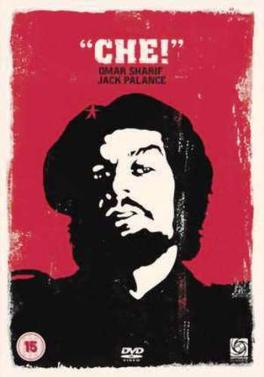
Che! is a 1969 American biographical film directed by Richard Fleischer and starring Omar Sharif as Marxist revolutionary Ernesto "Che" Guevara. It follows Guevara from when he first landed in Cuba in 1956 to his death in Bolivia in 1967, although the film does not portray the formative pre-Cuban revolution sections of Che's life as described in the autobiographical book The Motorcycle Diaries (1993).

Firewalker is a 1986 American action-adventure comedy film starring Chuck Norris, Louis Gossett Jr., Will Sampson in his final feature film role, and Melody Anderson. It was directed by J. Lee Thompson and written by Norman Aladjem, Robert Gosnell and Jeffrey M. Rosenbaum. This was the first comedic role for Norris, giving him a chance to poke fun at his action persona.

L'Île Mysterieuse / La Isla misteriosa y el capitán Nemo / Die Geheimnisvolle Insel is a 1973 Spanish-language Italian-Spanish-French-Cameroonian adventure film adapted from Jules Verne's 1875 novel L'Île mystérieuse. This version was directed by Juan Antonio Bardem and Henri Colpi and featured Omar Sharif as Captain Nemo. It was recut from a TV series of the same year.
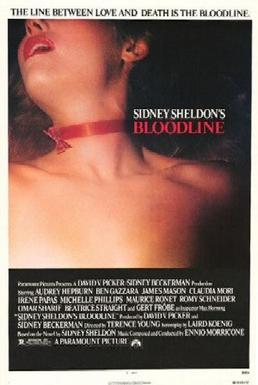
Bloodline is a 1979 thriller film directed by Terence Young from a screenplay by Laird Koenig, based on the 1977 novel of the same name by Sidney Sheldon. It was the only R-rated film ever made by its star, Audrey Hepburn.
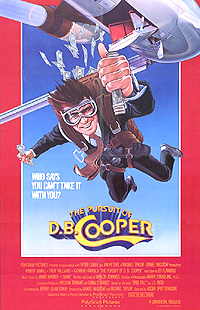
The Pursuit of D. B. Cooper is a 1981 American crime thriller film about infamous aircraft hijacker D. B. Cooper, who escaped with $200,000 after leaping from the back of a Boeing 727 airliner on November 24, 1971. The bulk of the film fictionalizes Cooper's escape after he landed on the ground.

The Last Sunset is a 1961 American Western film directed by Robert Aldrich and starring Rock Hudson, Kirk Douglas, and Dorothy Malone.

Johnny Got His Gun is a 1971 American independent epic anti-war film written and directed by Dalton Trumbo, in his directorial debut, based on his 1938 novel of the same name. The film stars Timothy Bottoms, Kathy Fields, Marsha Hunt, Jason Robards, Donald Sutherland and Diane Varsi. It was Trumbo's first and only directorial effort.
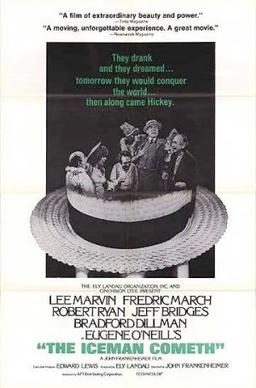
The Iceman Cometh is a 1973 American drama film directed by John Frankenheimer. The screenplay, written by Thomas Quinn Curtiss, is based on Eugene O'Neill's 1946 play of the same name. The film was produced by Ely Landau for the American Film Theatre, which from 1973 to 1975 presented thirteen film adaptations of noted plays.
Sorority House is a 1939 American drama film starring Anne Shirley and James Ellison. The film was directed by John Farrow and based upon the Mary Coyle Chase play named Chi House.
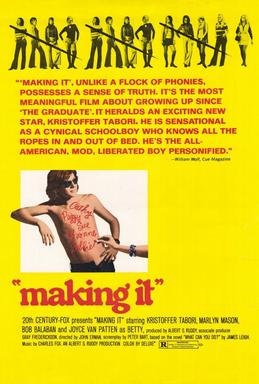
Making It is a 1971 comedy-drama film directed by John Erman and written by Peter Bart and James Leigh. It stars Kristoffer Tabori, Bob Balaban, Lawrence Pressman, Joyce Van Patten, Marlyn Mason, and a number of character actors familiar to TV audiences of the 1970s. Adapted from Leigh's 1965 novel What Can You Do?, the film follows several months in the life of an intelligent, precocious 17-year-old high school student who fancies himself a smooth Lothario.

Trumbo is a 2015 American biographical drama film directed by Jay Roach and written by John McNamara. The film stars Bryan Cranston, Diane Lane, Helen Mirren, Louis C.K., Elle Fanning, John Goodman, Michael Stuhlbarg as Edward G. Robinson, Dean O'Gorman as Kirk Douglas, and David James Elliott as John Wayne. The film follows the life of Hollywood screenwriter Dalton Trumbo, and is based on the 1977 biography Dalton Trumbo by Bruce Alexander Cook.
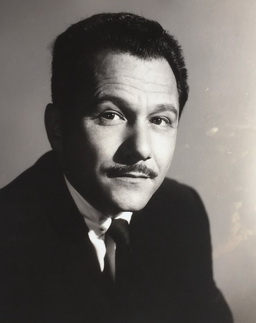
Edward Lewis was an American film producer and writer. As producer, he worked on nine films in partnership with actor Kirk Douglas; from 1958 to 1966, Lewis was Vice-President of Kirk Douglas film production company, Bryna Productions, as well as its subsidiaries, Brynaprod, Joel Productions and Douglas and Lewis Productions. He also produced nine films directed by John Frankenheimer. Lewis also wrote several books.


















